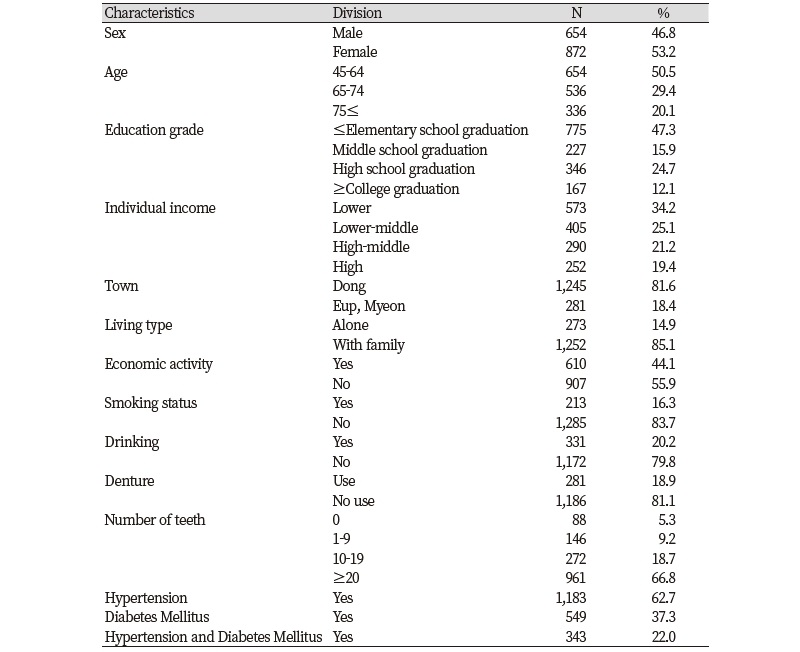Abstract
The purpose of this study was to investigate the effects of oral health behaviors of patients with hypertension and diabetic patients on the number of remaining teeth in Korean adults over 45 years of age, furthermore, we also aimed to develop oral health care programs and health promotion for patients with hypertension and diabetes. Altogether, 1,526 subjects with hypertension and diabetes from the 6th Korean National Health and Nutrition Survey (2013-2015) were analyzed. A multiple logistic regression analysis was performed to determine the effects of oral health behavior and periodontal disease on residual teeth in patients with hypertension and diabetes after adjusting for age. We found 1.53 times the risk of having less than 20 remaining teeth in the group of brushing more than 3 times a day (95% CI: 1.00-2.35,
Figures & Tables



